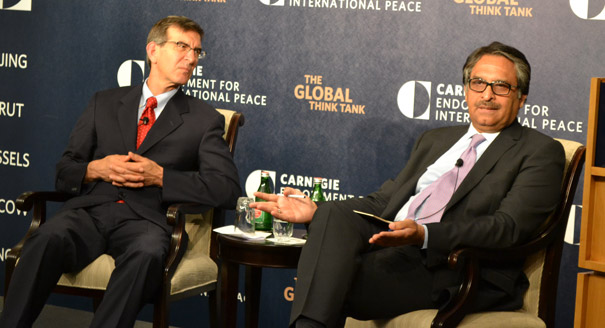Registration
You will receive an email confirming your registration.
As Narendra Modi’s government takes shape in New Delhi, questions abound about the future of the India-Pakistan relationship. Despite Pakistani Prime Minister Nawaz Sharif’s promise to normalize ties with India, relations between the two rivals have changed little in the year since he took office. Will Modi’s election lead to a new start between India and Pakistan, or could it instead mark the beginning of a new phase of deterioration? How will domestic politics in Pakistan influence its India policy? Pakistani Ambassador Jalil Abbas Jilani discussed the prospects for peace between the two countries.
Jalil Abbas Jilani
Ambassador Jalil Abbas Jilani became Pakistani Ambassador to the United States on January 2, 2014. Prior to his appointment, Jilani served as foreign secretary of Pakistan from March 2012 to December 2013. He is a career diplomat and has also served as ambassador to Belgium, Luxembourg, and the European Union, and as Pakistan's high commissioner in Canberra, Australia.
George Perkovich
George Perkovich is vice president for studies and director of the Nuclear Policy Program at the Carnegie Endowment for International Peace.
